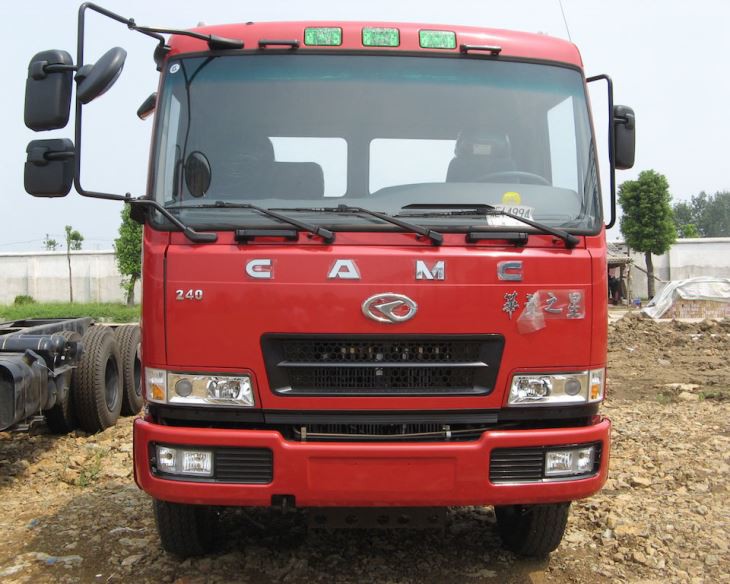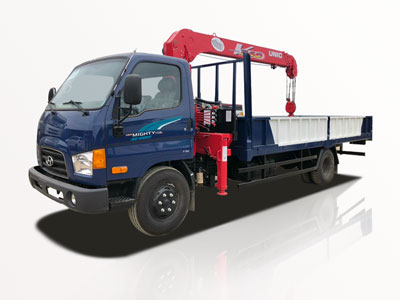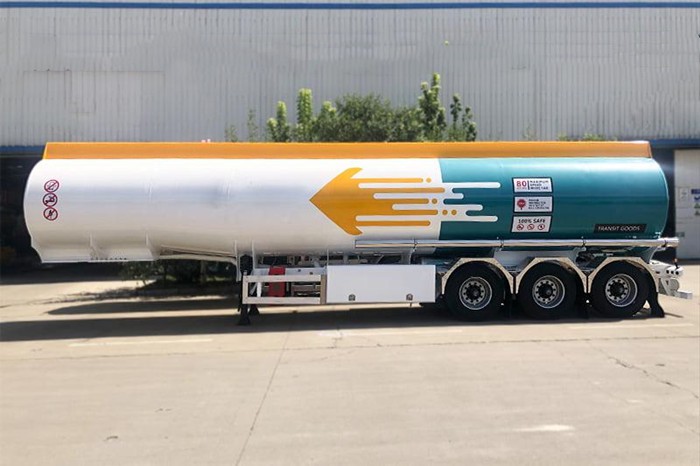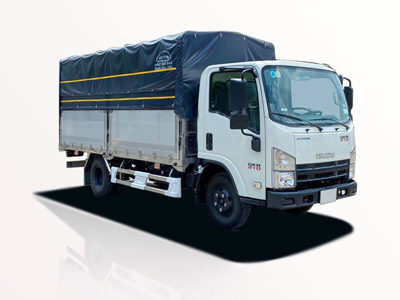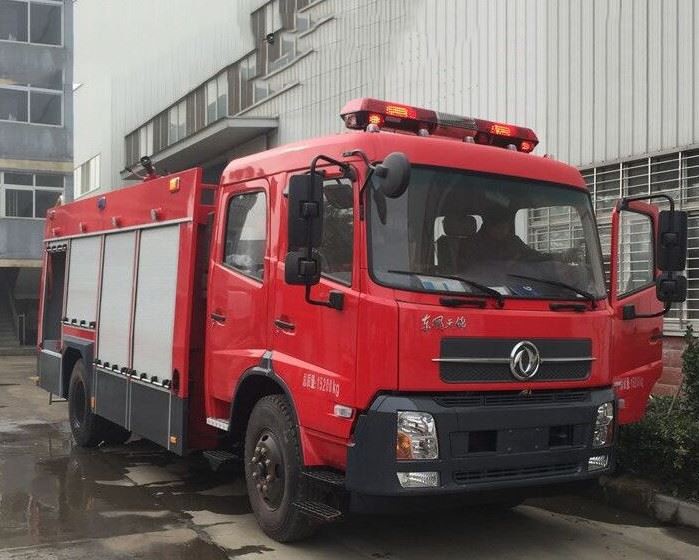Refrigerated reefer trucks play a pivotal role in the transport of perishable goods, ensuring that everything from fresh produce to pharmaceuticals reaches its destination safely and in optimal condition. These specialized vehicles are equipped with advanced temperature control systems that maintain specific environments for sensitive cargo. In this article, we will explore the workings of refrigerated reefer trucks, their benefits, key features, and practical applications, along with tips for choosing the right reefer truck for your transportation needs.
The Basics of Refrigerated Reefer Trucks
What Are Refrigerated Reefer Trucks?
Refrigerated reefer trucks are commercial vehicles specifically designed to transport temperature-sensitive products. They are insulated and equipped with refrigeration units that can maintain low temperatures, ensuring perishable items, such as food, pharmaceuticals, and other critical goods, remain fresh during transit.
How Do Refrigerated Reefer Trucks Work?
Reefer trucks operate through a combination of insulation and a refrigeration system. The insulation prevents outside heat from entering the cargo space while the refrigeration unit, powered by diesel or electricity, lowers the interior temperature. Additionally, modern reefer trucks often come with dual-temperature zones for transporting items requiring different temperature settings.
Benefits of Using Refrigerated Reefer Trucks
1. Product Preservation
One of the most significant advantages of refrigerated reefer trucks is their ability to maintain the integrity of temperature-sensitive goods. This ensures products like meat, dairy, and frozen foods maintain their edibility and quality over time.
2. Extended Shelf Life
Keeping products at a consistent temperature can significantly extend their shelf life. For instance, fresh fruits and vegetables can last much longer when transported in a refrigerated environment, reducing food waste.
3. Regulatory Compliance
Many industries must comply with stringent food safety regulations. Refrigerated trucks help businesses meet these regulations by ensuring products are stored and transported under prescribed conditions.
4. Business Opportunities
Utilizing refrigerated trucks expands the range of products a business can transport, opening up new markets and customer bases that rely on fresh and frozen goods.
5. Versatile Applications
Reefer trucks are not limited to the food industry; they can also transport pharmaceuticals, cosmetics, chemicals, and more, making them adaptable to various sectors.
Key Features of Refrigerated Reefer Trucks
1. Insulation
High-quality insulation is crucial for maintaining the inner temperature of a reefer truck. Common insulation materials include polyurethane foam and polystyrene, which offer superior thermal resistance.
2. Refrigeration Units
Refrigeration units can be powered by the truck’s diesel engine or by an independent electric source. Advanced units often incorporate variable speed technology and digital controls for optimal performance.
3. Temperature Monitoring Systems
Modern reefer trucks are equipped with temperature monitoring systems to track conditions in real-time. This technology is essential for ensuring compliance with food safety standards and can alert drivers to any temperature deviations.
Types of Temperature Monitoring Systems
| Type | Description |
|---|---|
| Digital Monitors | Provide real-time temperature readings and alerts on a display screen. |
| Data Loggers | Record temperature data over time for compliance and analysis. |
| Remote Monitoring | Allow operators to view temperatures from a distance via an app or web portal. |
4. Dual-Temperature Compartments
Some reefer trucks come with dual-compartments that enable the transportation of products requiring different temperature settings. This feature enhances operational efficiency and allows for a diverse range of goods to be shipped simultaneously.
5. Temperature Control Settings
Most refrigerated reefer trucks offer various settings, allowing drivers to customize temperatures according to the specific requirements of their cargo. This flexibility is essential in the transport of diverse products.
Choosing the Right Refrigerated Reefer Truck
1. Assess Your Cargo Requirements
Understanding the type of goods you will be transporting is key. Assess whether you need a unit that maintains frozen temperatures or just a chilled environment. For example, seafood requires very low temperatures, while fruits and vegetables may only need to be kept cool.
2. Consider Size and Capacity
Evaluate how much cargo you will typically transport. Reefer trucks come in various sizes, and ensuring you choose one that meets your capacity needs will optimize efficiency. A common size is a 53-foot trailer, which can carry up to 26 pallets.
3. Fuel Efficiency
Fuel costs are a significant expense in operating refrigerated trucks. Look for models with energy-efficient refrigeration systems and engines that consume less fuel for long-distance trips.
4. Maintenance and Reliability
Choose a manufacturer with a reputation for reliability and quality service. Regular maintenance is essential for the longevity of your reefer truck and ensuring consistent performance.
5. Technology Features
Invest in technology that enhances operational efficiency, such as temperature monitoring systems and GPS tracking. This technology can reduce losses and improve customer satisfaction.
Common Applications of Refrigerated Reefer Trucks
1. Food and Beverage Industry
The food and beverage sector is the most significant user of refrigerated trucks. They are essential for distributing fresh produce, dairy products, meat, and frozen items to grocery stores and restaurants.
2. Pharmaceutical Industry
Pharmaceuticals often require strict temperature control, especially vaccines and biologics. Refrigerated trucks ensure that these products are kept within safe temperature ranges, maintaining their efficacy.
3. Floral Transport
Reefer trucks are crucial for transporting flowers and plants, which can perish quickly without appropriate climate control. Maintaining cooler temperatures keeps the products fresh during transit.
4. Chemical Transport
Certain chemicals must be stored at specific temperatures to remain stable. Use refrigerated trucks to transport these sensitive materials safely and in compliance with regulations.
Best Practices for Operating Refrigerated Reefer Trucks
1. Regular Maintenance Checks
Conduct regular inspections of the refrigeration unit, insulation, wheels, and overall vehicle condition. Keeping the system well-maintained ensures optimal performance and reduces breakdown risks.
2. Load Products Correctly
Proper loading techniques should be used to ensure airflow and even temperature distribution within the trailer. Avoid overloading, which can compromise refrigeration efficiency.
3. Monitor Temperature During Transport
Keep a close eye on temperature readings during transport, especially for sensitive cargo. If deviations are noted, address them immediately to prevent spoilage and losses.
4. Plan Efficient Routes
Use route planning tools to ensure the quickest paths are taken, minimizing the time goods spend in transit. A more efficient route can help maintain the quality of the cargo, particularly over long distances.
FAQs About Refrigerated Reefer Trucks
1. How do I know what temperature to set for my cargo?
The temperature setting depends on the type of product. For example, frozen foods typically require temperatures of -18°C (0°F), while fresh produce may need to be kept at around 0°C to 4°C (32°F to 39°F).
2. Are refrigerated trucks more expensive to operate than standard ones?
Yes, refrigerated trucks generally have higher operating costs due to the maintenance and fuel requirements of the refrigeration units. However, they can be a valuable investment for businesses that transport perishable goods.
3. How often should I maintain a reefer truck?
Regular maintenance checks should occur at least every 3 to 6 months, or more frequently depending on usage. Routine checks on the refrigeration unit are particularly crucial to prevent failures during transport.
4. Can I use a reefer truck for non-perishable items?
While it’s not necessary, you can use reefer trucks for non-perishable items if you want to ensure a controlled environment. However, it may be more cost-effective to use standard freight trucks for such goods.
5. What are the different types of refrigerated trucks?
Refrigerated trucks come in various forms, including box trucks, trailer units, and straight trucks. Each type serves different operational needs, from short local deliveries to long-haul transport.
6. Do refrigerated trucks require special driving training?
While standard truck driving licenses are typically sufficient, training on the specific operations of a refrigerated truck, including how to manage the refrigeration unit, is highly recommended to ensure safe and effective transport.
